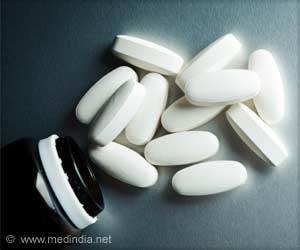A common drug called amisulpride has been found to be effective to prevent postoperative nausea and vomiting (PONV), reveals a new study.

‘Low dose of intravenous amisulpride in combination with a standard anti-nausea treatment is found to be safe and effective in preventing PONV.’





Risk factors for PONV include being female, having a prior history of PONV or motion sickness, nonsmokers and those expected to use opioids after surgery for pain. Without effective preventive treatment, nausea and/or vomiting in the 24 hours after surgery may occur in 60 to 80 percent of patients with at least three of the recognized risk factors. Currently, drugs from the serotonin 5-HT3 and corticosteroid classes are most commonly administered intraoperatively to prevent nausea and vomiting after surgery. However, "safe and effective anti-nausea drugs from other classes are needed to complement these," Dr. Kranke said.
Amisulpride works by blocking dopamine signaling in the body. Similar dopamine-blocking drugs were once previously used to prevent and control nausea and vomiting after surgery but are now avoided because irregular heart rhythms and drug-induced movement disorders occurred with their use. Amisulpride appears to be as effective as the previously used drugs in that class, but without the safety concerns, the authors note.
The study included 1,147 adult patients undergoing elective surgery under general anesthesia, who had three or four PONV risk factors. Patients were randomly assigned to receive either 5 milligrams of amisulpride intravenously or a placebo at the beginning of receiving general anesthesia, in addition to another anti-nausea drug.
Scientists found 58 percent of patients receiving amisulpride had a complete response -- defined as no vomiting or need for fast-acting medication to relieve vomiting -- in the 24 hours after surgery, compared with 47 percent of those receiving the placebo. Overall, vomiting (14 percent amisulpride vs. 20 percent placebo), any nausea (50 percent amisulpride vs. 58 percent placebo), significant nausea (37 percent amisulpride vs. 48 percent placebo), and those requiring fast-acting medication to relieve vomiting (41 percent amisulpride vs. 49 percent placebo) were significantly lower in the amisulpride group. Adverse events occurred no more frequently with amisulpride than with placebo.
Advertisement
Amisulpride is currently under review by the U.S. Food and Drug Administration. According to the authors, amisulpride has been used orally - in much larger doses than the intravenous dose used to prevent PONV in the current study - in European patients for 30 years to manage psychosis.
Advertisement
Source-Eurekalert















